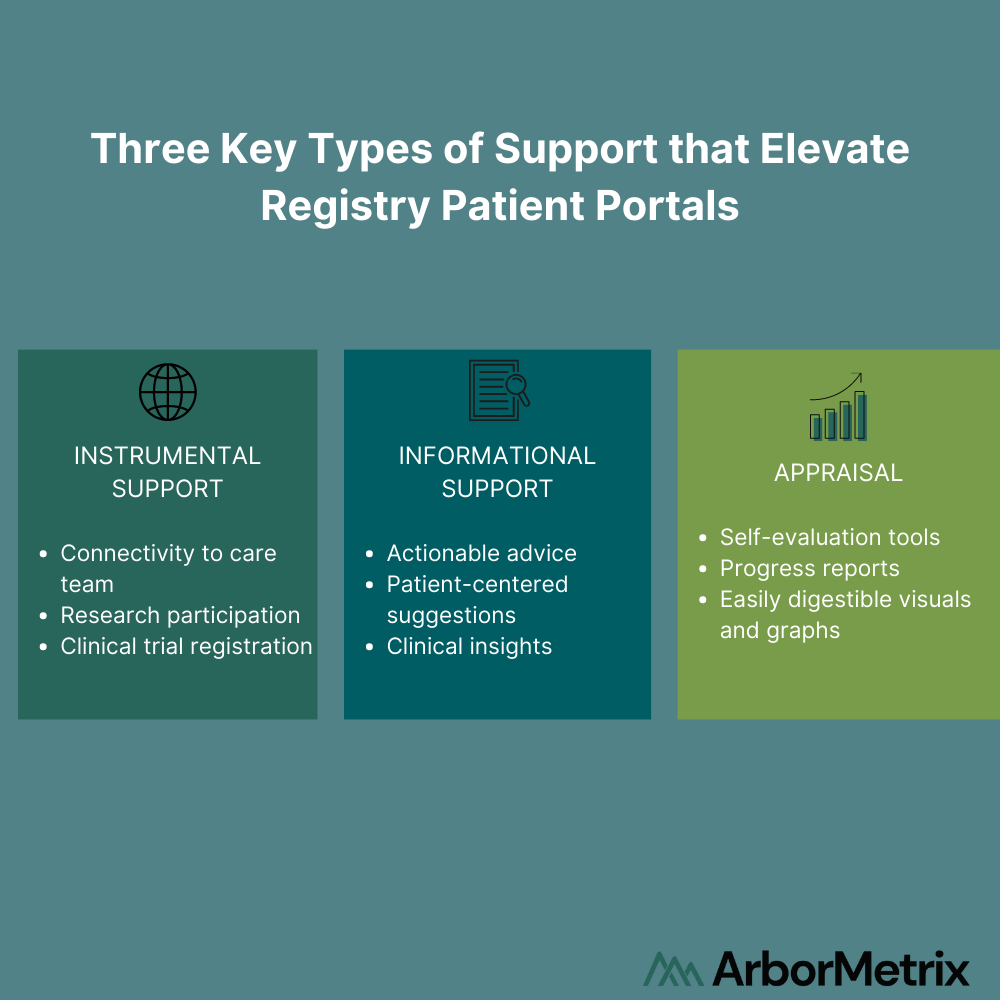
The Council of Medical Specialty Societies (CMSS) held their 2020 Virtual Annual Meeting with the theme of Covid-19 and Beyond: Digital Transformation of Healthcare, Research, and Education.
The dynamic group of presenters and panelists covered a variety of topics that demonstrate how digital technology, such as clinical registries and healthcare analytics, can be instrumental in advancing healthcare.
Our key takeaway: The digital transformations that are needed to make these advancements are less about how people transform technology and more about how technology transforms people and lives.
Registries, for instance, can be used to help solve some of the most intractable issues in healthcare like:
- Addressing underlying root causes of health disparities.
- Making it easier for patients to understand, navigate, and manage their care.
- Monitoring and managing COVID-19 and other emerging priorities.
1. Addressing Root Causes of Health Disparities
There are widespread and longstanding health disparities among racial and ethnic minorities.
These disparities cause some populations to face unfair health burdens. Health is a fundamental human right, and consequently, healthcare stakeholders have an ethical obligation to ensure fair and just health experiences by acting to eliminate avoidable health disparities.
Clinical data registries are powerful tools for assessing health disparities, identifying the root causes, and tracking efforts to address health inequities. Importantly, these tools should provide actionable insight, as referenced by Rhea Boyd, M.D., M.P.H., Pediatrician and Child Health Advocate at Palo Alto Medical Foundation and UCSF Benioff Children’s Hospital.
This work includes implementing robust data logic rules to identify underperformance in need of equity-focused quality improvement efforts, as presented by Ernest Moy, M.D., M.P.H., Executive Director, Office of Health Equity, U.S. Department of Veterans Affairs. Those health equity efforts are made more effective with social determinants of health analytics that provide a comprehensive view of the interconnected factors influencing a patient’s health.
How Registries Can Advance Health Equity
Alongside several of our partners at medical specialty societies, we see the very real effects of longstanding and systemic health disparities – made evident through evaluating data in their registries.
Registries collect a high-volume of data from different sources and deliver high-quality, data-driven insights. Efforts to reduce health disparities require data to detect and measure the impact of disparities, identify the complex and interconnected determinants, and inform interventions and best practices.
Efforts to advance health equity through registries fall into three activities:
- Measuring health disparities. To reduce health inequities, we need methods to measure disparate health outcomes and methods to assess the impact of those disparities across different types of health indicators.
- Assessing underlying factors. Effectively addressing health disparities requires understanding the underlying factors influencing disparate outcomes.
- Forming and evaluating interventions. By assessing health disparities and their underlying factors, we will have insights to develop impactful interventions and sustaining widespread health equity improvements through tracking best practices.
2. Helping Patients Understand Their Care and Outcomes
Healthcare is complex. Patients can be overwhelmed as they try to understand, navigate, and make important decisions about their care.
Consider a patient with a chronic condition who might have up to 20 healthcare providers, all generating assessments and treatment plans that must be coordinated and aligned. Even people who have spent their life working in healthcare can feel overburdened by the amount and complexity of information presented to patients.
More patients are now turning to technology to help them through their care journey. And now more technology is becoming patient-centric to help patients overcome common barriers they face in their healthcare.
For example, registries can offer patient engagement tools that provide patients with meaningful support as they interact with their health. Registry patient portals should offer key types of support to improve patient experiences and health outcomes:
- Instrumental Support. Tangible services and functions, such as capabilities to directly connect to their care team or participate in clinical trials or research.
- Informational Support. Connection to tailored patient resources that provide advice, suggestions, and clinical insights.
- Appraisal. Personalized registry data can be presented back to patients in easy-to-review graphs. This can show patients how they are progressing throughout their treatment, which helps patients to self-evaluate their progress and health experiences.

As described by Donna Cryer, JD, President and CEO of the Global Liver Institute, these patient-centric technologies give patients supportive communities and influential tools to elevate a patient’s voice and help them maximize their health.
3. Understanding a Global Pandemic
Monitoring, managing, and understanding COVID-19 was top-of-mind throughout several sessions. Registries are playing a central role in this.
Modern registries can address emerging health issues like the pandemic with rapid measurement and quick discoveries.
There are three key parts to doing this successfully:
- Determining the priorities and research questions a registry can uniquely answer.
- Using trusted data and advanced analytics to address critical issues.
- Leveraging a flexible data infrastructure to pivot at any time – modern clinical data registries are designed to evolve.
Several organizations are already leveraging their registries and data infrastructure to be proactive in measuring, monitoring, and addressing the COVID-19 pandemic. You can learn from them and find more strategies in our blog post “Best Practices for Clinical Registries with New Research Priorities.”
Registry Technology Should be People-Centric
Overall, digital transformations are about using technology to solve issues for people, not simply about using people to solve technology issues.
It is less about being technology-centric than it is about making technology people-centric. Registries are powerful tools that can be designed to address some of the most widespread health issues affecting people, while also engaging patients in innovative ways to improve their health experiences.
From defining the vision for a registry program to designing surveys and reports for clinicians and patients, we take a person-driven approach.

